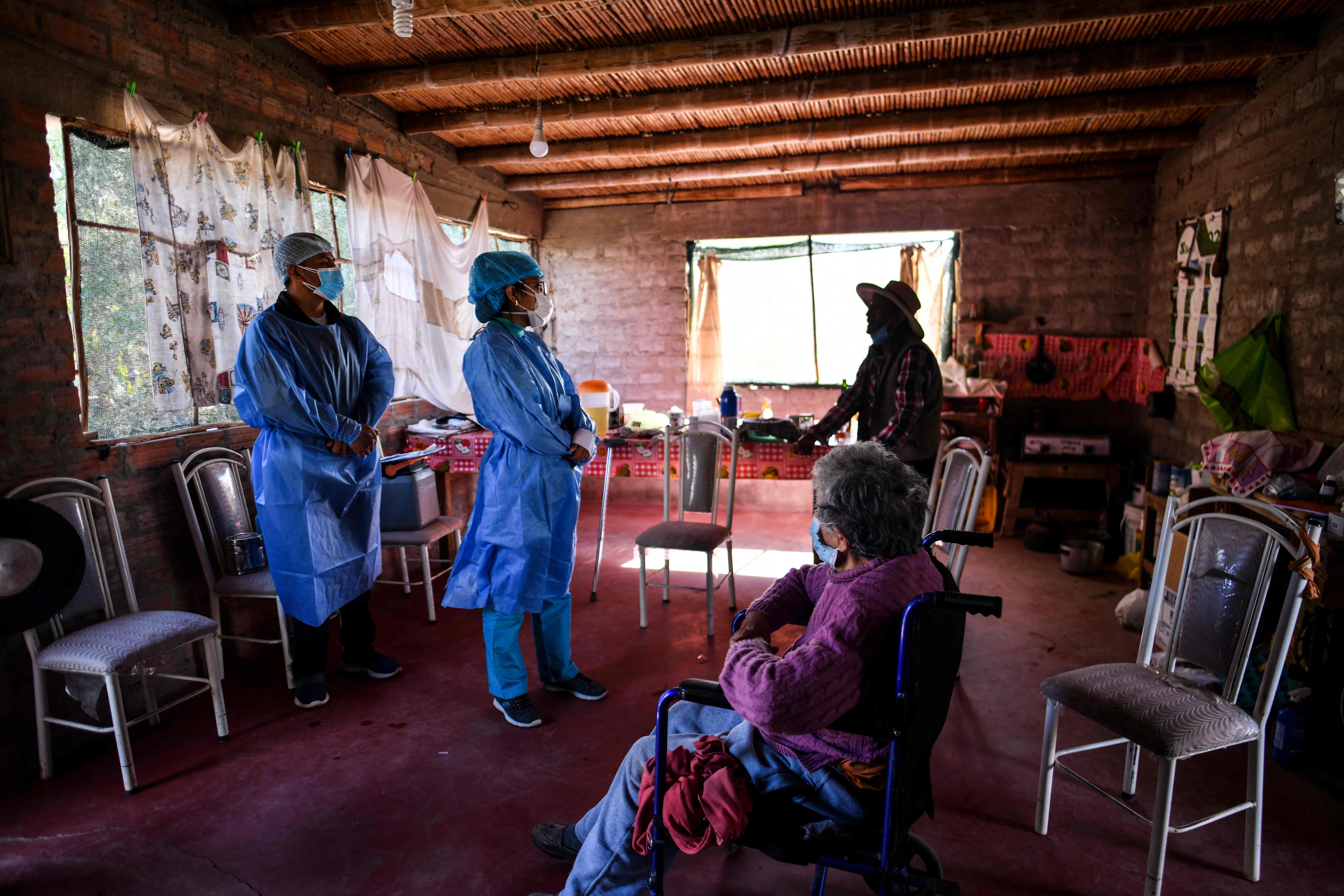Lambda variant: Details of new Covid mutation identified by WHO
Health body warns mutation has ‘potential increased transmissibility or possible increased resistance to neutralising antibodies’

The Lambda variant was first identified in Peru and has been detected in coronavirus samples dating back to 2020.
It spread throughout the country and by April, the variant – which is also known as lineage C.37 – accounted for more than 80 per cent of cases.
Now, it has spread throughout South America, North America and to Europe, and has been named a “variant of interest” by the World Health Organisation.
Where is the Lambda variant most prevalent?
Data from Gisaid, the Global Initiative on Sharing All Influenza Data, suggests that the variant has been detected in 29 countries worldwide.
Most of these are in Chile (840), the United States (608) and Peru (239).
Relatively significant numbers of cases have also been identified in Mexico (89), Argentina (87) and Ecuador (50).
Four have been recorded in Brazil, one in Uruguay and 19 in Columbia.
A total of eight cases have been detected in the UK, as of the latest update on 2 July – although this is likely to be an underestimate.
Should we be concerned?
According to the WHO’s weekly epidemiological update published on 15 June, the Lambda variant “has been associated with substantive rates of community transmission in multiple countries, with rising prevalence over time concurrent with increased Covid-19 incidence”.
The earliest sequenced samples were reported from Peru in August 2020 and as of 15 June 2021, over 1,730 sequences have been uploaded to Gisaid from 29 areas in five WHO regions.
The WHO update said: “Elevated prevalence was noted particularly in South America in countries such as Chile (31 per cent overall prevalence among submitted sequences) since first detected in this location to date), Peru (9 per cent), Ecuador (8 per cent), and Argentina (3 per cent).
“Authorities in Peru reported that 81 per cent of Covid-19 cases sequenced since April 2021 were associated with Lambda.
“Argentina reported increasing prevalence of Lambda since the third week of February 2021, and between 2 April and 19 May 2021, the variant accounted for 37 per cent of the Covid-19 cases sequenced.
“In Chile, prevalence of Lambda has increased over time, accounting for 32 per cent of sequenced cases reported in the last 60 days – co-circulating at similar rates to variant Gamma (33 per cent), but outcompeting variant Alpha (4 per cent) over the same period.”
The WHO said the Lambda variant “carries a number of mutations with suspected phenotypic implications, such as a potential increased transmissibility or possible increased resistance to neutralising antibodies”.
The health agency added that the variant was “characterised by mutations in the spike protein ... however, there is currently limited evidence on the full extent of the impact associated with these genomic changes, and further robust studies into the phenotypic impacts are needed to better understand the impact on countermeasures and to control the spread. Further studies are also required to validate the continued effectiveness of vaccines.”
WHO virologist Jairo Mendez-Rico said: “So far we have seen no indication that the Lambda variant is more aggressive.
“It is possible that it may exhibit higher infection rates, but we don’t yet have enough reliable data to compare it to gamma or delta.”
Join our commenting forum
Join thought-provoking conversations, follow other Independent readers and see their replies
Comments
Bookmark popover
Removed from bookmarks